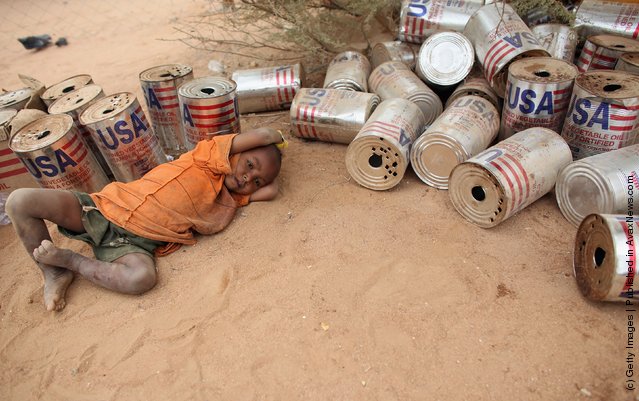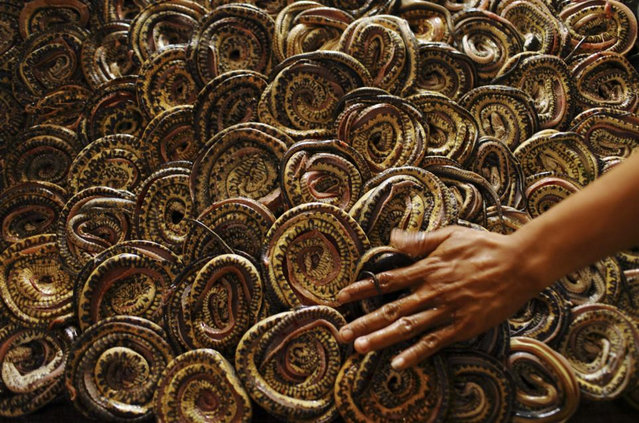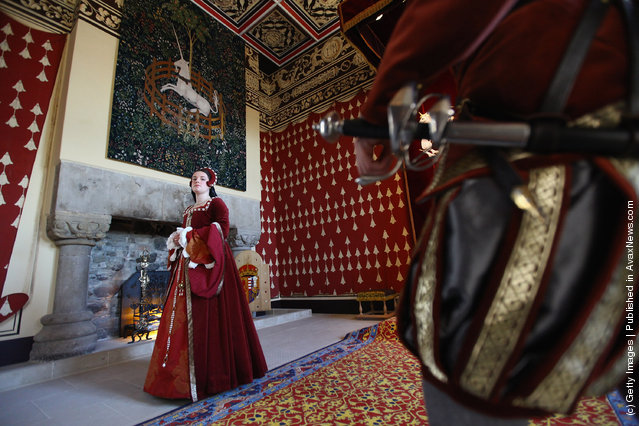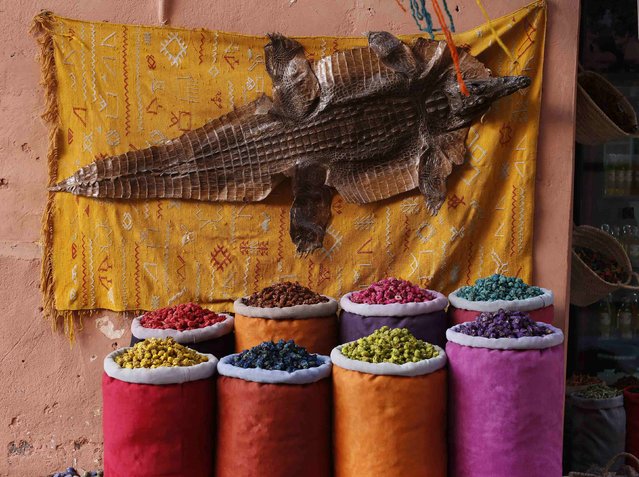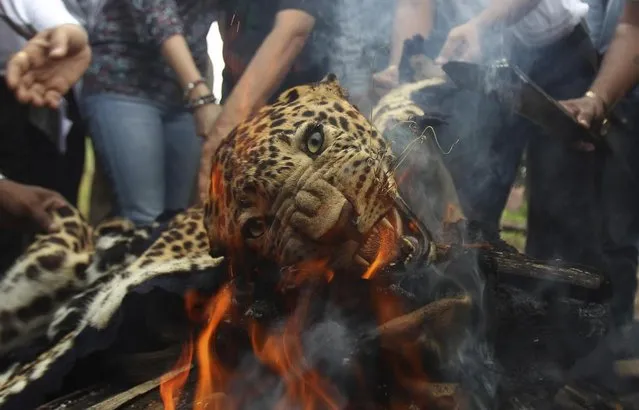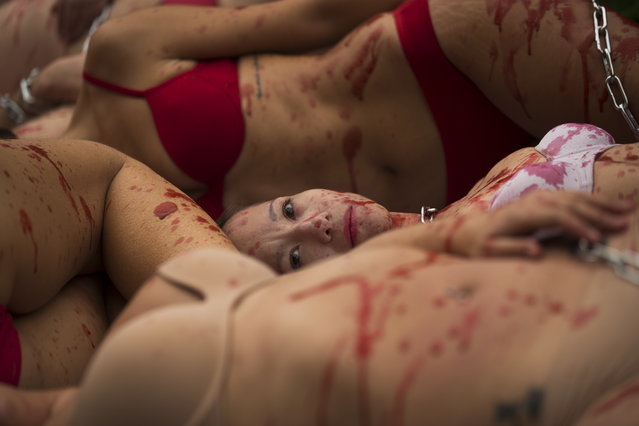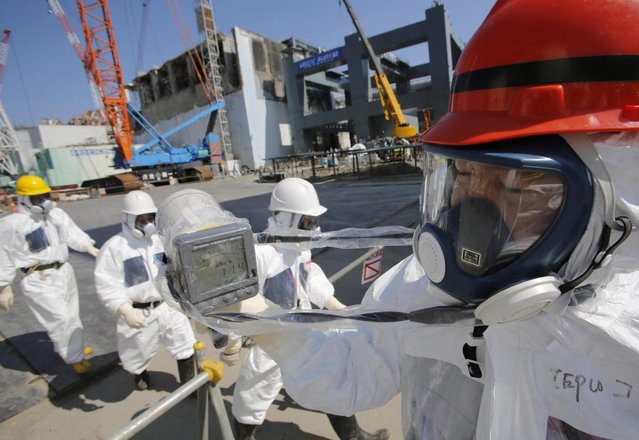
Stormtrooper Jacob French is pictured on day 5 of his over 4,000 kilometre journey from Perth to Sydney approximately 25 kilometres from Mandurah on July 15, 2011 in Perth, Australia. French aims to walk 35-40 kilometres a day, 5 days a week, in full Stormtrooper costume until he reaches Sydney. French is walking to raise money for the Starlight Foundation - an organisation that aims to brighten the lives of ill and hostpitalised children in Australia. (Photo by Paul Kane/Getty Images)
16 Jul 2011 12:42:00,post received
0 comments

